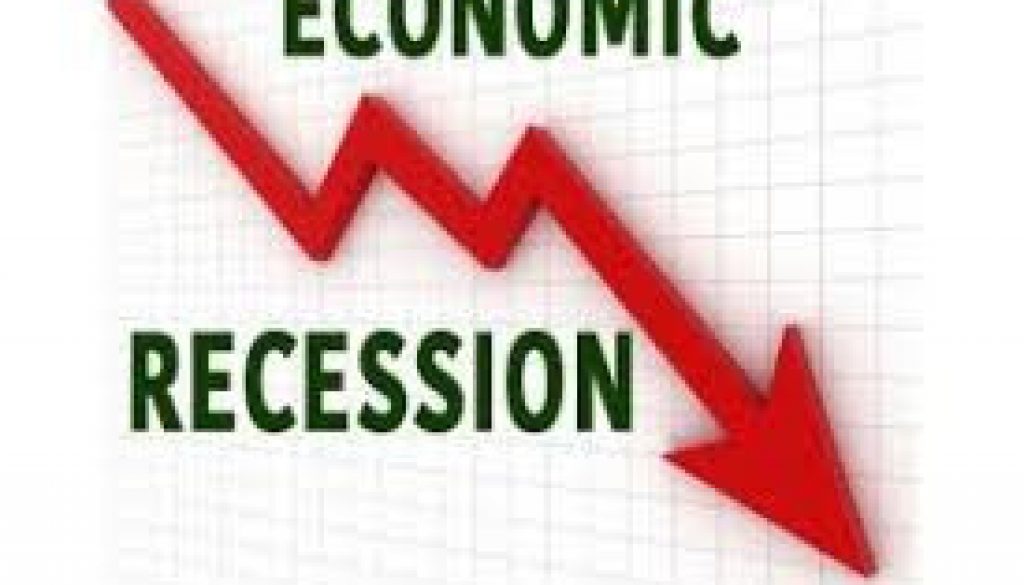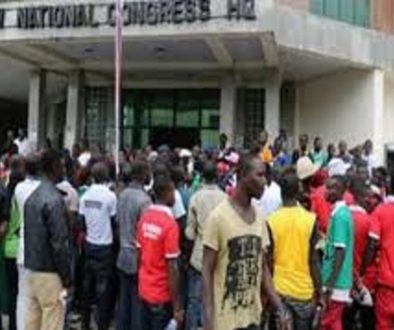Economic recession looms again in Nigeria
Just a year after Nigeria exited from
gruelling economic crunch caused by recession, the nation’s apex bank
has warned that the economy risks a relapse into recession.
gruelling economic crunch caused by recession, the nation’s apex bank
has warned that the economy risks a relapse into recession.
Mr. Godwin Emefiele, the Governor of the Central Bank of Nigeria (CBN),
warned
at the closing of the Monetary Policy Committee (MPC) meeting in Abuja.
warned
at the closing of the Monetary Policy Committee (MPC) meeting in Abuja.
MPC members were worried that “the exit
from the recession may be under threat as the economy slowed to 1.95 per
cent and 1.50 per cent within the first and the second quarter 2018”.
from the recession may be under threat as the economy slowed to 1.95 per
cent and 1.50 per cent within the first and the second quarter 2018”.
The CBN raised a similar alarm in 2015 and 2016 of an impending recession if certain threats to the economy were not addressed.
The economy plunged into recession shortly after from end of 2016 through 2017.
“The Monetary Policy Committee
appraised the microeconomic environment and noted that at its
July meeting, modest stability was achieved in key indicators, including
inflation, exchange rate and reserves.
appraised the microeconomic environment and noted that at its
July meeting, modest stability was achieved in key indicators, including
inflation, exchange rate and reserves.
In particular, relative stability
returned to the foreign exchange market, going by a robust level of
external reserves with inflation trending downward for the 18th
consecutive months.
returned to the foreign exchange market, going by a robust level of
external reserves with inflation trending downward for the 18th
consecutive months.
These gains so far achieved appear to be
under threat of reversal following the new data which provides evidence
of weakening fundamentals.”
under threat of reversal following the new data which provides evidence
of weakening fundamentals.”
This threat to the economy, he said,
comes from “rising inflation and pressure on the external reserves
created by the capital flow reversal as the current challenges grow”. He
noted that the inflationary measure was rebuilding,
and “capital flow reversal has intensified as shown by the bearish
trend in the equities market even though the exchange rate remains very
stable.”
comes from “rising inflation and pressure on the external reserves
created by the capital flow reversal as the current challenges grow”. He
noted that the inflationary measure was rebuilding,
and “capital flow reversal has intensified as shown by the bearish
trend in the equities market even though the exchange rate remains very
stable.”
The MPC, Emefiele said, “noted that the
slowdown emanated from the oil sector, with strong linkages to
employment and growth in the key sectors of the economy”.
slowdown emanated from the oil sector, with strong linkages to
employment and growth in the key sectors of the economy”.
The committee urged the government to
take advantage of the current rising trend in the oil prices to rebuild
fiscal buffers, strengthen government finances in the medium term and
reverse the current trend of decline in output
growth.
take advantage of the current rising trend in the oil prices to rebuild
fiscal buffers, strengthen government finances in the medium term and
reverse the current trend of decline in output
growth.
Other threats to the economy, which may
aggravate the onset of recession, Emefiele warned, include “the
potential impact of liquidity injection from election related spending,
and increase in FAAC distribution, which is rising
in tandem with increase in oil receipt.”
aggravate the onset of recession, Emefiele warned, include “the
potential impact of liquidity injection from election related spending,
and increase in FAAC distribution, which is rising
in tandem with increase in oil receipt.”
The Committee “was concerned with the
rising level of non-performing loans in the banking system, traced
mainly to the oil sector and urged the banks to closely monitor and
address the situation.”
rising level of non-performing loans in the banking system, traced
mainly to the oil sector and urged the banks to closely monitor and
address the situation.”
Members of the MPC were concerned over
the weak intermediation by the Deposit Money Banks and its adverse
impact on credit expansion and investment growth by the private sector.
the weak intermediation by the Deposit Money Banks and its adverse
impact on credit expansion and investment growth by the private sector.
The MPC noted that the economy was still
confronted with growth challenges and inflationary pressure but
reiterated the need for synergy between the monetary and fiscal
authorities as availed option for macroeconomic stability.
confronted with growth challenges and inflationary pressure but
reiterated the need for synergy between the monetary and fiscal
authorities as availed option for macroeconomic stability.
The MPC also called on the fiscal
authorities “to intensify the implementation of the Economic Recovery
and Growth Plan (ERGP) to stimulate economic activities, bridge the
output gap and create employment.”
authorities “to intensify the implementation of the Economic Recovery
and Growth Plan (ERGP) to stimulate economic activities, bridge the
output gap and create employment.”
The committee lamented that the threats
to the food supply chain in major food producing states due to poor
infrastructure, flooding and security challenges may lead to a “rise in
food prices, contributing to the uptake in the
headline inflation”.
to the food supply chain in major food producing states due to poor
infrastructure, flooding and security challenges may lead to a “rise in
food prices, contributing to the uptake in the
headline inflation”.
However, the committee was optimistic
that as harvests progress, “in the coming months, pressure on food
prices would gradually continue to recede while growth enhancing
measures would over the medium term, have some moderating
impact on food prices”.
that as harvests progress, “in the coming months, pressure on food
prices would gradually continue to recede while growth enhancing
measures would over the medium term, have some moderating
impact on food prices”.
The MPC called on the government to fast
track implementation of the 2018 budget to help jump start sustainable
economic recovery and to facilitate passage of the Petroleum Industry
Bill to increase contribution to the overall
GDP.
track implementation of the 2018 budget to help jump start sustainable
economic recovery and to facilitate passage of the Petroleum Industry
Bill to increase contribution to the overall
GDP.




